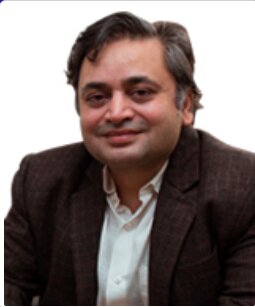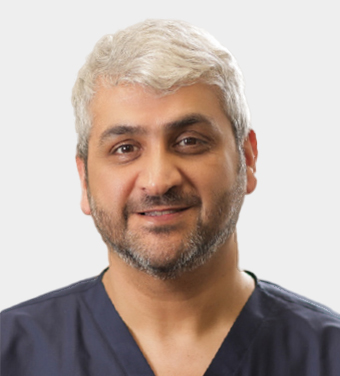Fill out form to enquire now
Neurologist in Delhi
The nervous system functions like a superhighway in your body, with nerves carrying messages between your brain and the rest of your body. It enables you to move, feel, think, and even breathe without thinking about it. However, this system can experience faults, resulting in headaches, tingling, or difficulty moving. That is where a neurologist comes in. They function as expert mechanics for the nervous system. Neurologists are specialists who study and treat problems with the brain, spinal cord, and nerves. They apply their understanding to diagnose illnesses such as epilepsy, Parkinson’s disease, and even chronic headaches. Neurologists have a wide range of therapy choices. It could be medication to quiet overactive nerves, treatment to retrain the brain after an accident, or even surgery to correct a problem. Their goal is to assist you get your nervous system back on track and feel like yourself again. At medintu, we have the best neurologists in Delhi, who can provide excellent treatment for all neurological diseases, in both adults and children.
Top Neurologists in Delhi
In Delhi, some top neurologists provide excellent care for their patients’ conditions. They oversee and take care of neurological diseases and nervous system issues. The area of medicine known as neurology is dedicated to understanding and treating nervous system problems. The nervous system controls and synchronises bodily functions in a sophisticated and complex manner. A neurologist is a medical professional with expertise in neurology. The neurologist manages conditions that impact the nerves, spinal cord, and brain. The surgeries are not carried out by neurologists; rather, they direct the neurosurgeons to do so. In Delhi, several outstanding neurologists provide excellent care and cures for their patients.




Why do you need to consult a neurologist?
Headaches: If you suffer from severe or persistent headaches that do not respond to over-the-counter medication, a neurologist can help you determine the cause and develop a treatment plan that works for you.
Seizures: If you’ve had seizures or uncontrollable shaking, a neurologist can diagnose epilepsy and help you manage it with medication or other treatments.
Weakness or Numbness: Weakness, numbness, or tingling in your limbs could indicate nerve injury or a neurological disorder that requires treatment.
Movement Disorders: Parkinson’s disease and multiple sclerosis are two conditions that can cause movement and coordination issues. A neurologist can help diagnose these disorders and provide therapies to manage symptoms and enhance quality of life.
Memory Problems: If you’re having difficulties remembering, thinking, or concentrating, you may be suffering from a neurological disorder such as Alzheimer’s disease or dementia. A neurologist can run tests to assess your cognitive function and propose suitable treatment.
Chronic Pain: Chronic pain issues, such as neuropathy or fibromyalgia, can be difficult to manage. A neurologist can help you build a thorough treatment plan to reduce pain and improve function.
What types of tests does a neurologist recommend?
Electroencephalogram (EEG): This test assesses electrical activity in the brain and is commonly used to identify epilepsy and other seizure disorders.
Magnetic Resonance Imaging (MRI): An MRI scan produces comprehensive images of the brain, spinal cord, and nerves, allowing neurologists to spot anomalies such as tumors, strokes, and multiple sclerosis lesions.
Computed Tomography (CT scan): CT scans use X-rays to provide comprehensive cross-sectional images of the brain and skulls. They can assist diagnose diseases such as brain hemorrhage and skull fractures.
Nerve Conduction Studies (NCS) and Electromyography (EMG): These tests assess nerve and muscle function, which aids in the diagnosis of illnesses like carpal tunnel syndrome, peripheral neuropathy, and ALS (Amyotrophic Lateral Sclerosis).
Lumbar Puncture (Spinal Tap): This treatment involves inserting a needle into the spinal canal and collecting cerebrospinal fluid for examination. It can be used to diagnose illnesses such as meningitis, multiple sclerosis, and certain types of dementia.
Blood Tests: Blood tests can reveal useful information regarding a variety of neurological illnesses, such as infections, autoimmune disorders, and metabolic abnormalities.
Neuropsychological Testing: These tests evaluate cognitive function, memory, and other aspects of brain function, helping diagnose conditions like Alzheimer’s disease, traumatic brain injury, or attention deficit hyperactivity disorder (ADHD).
Why is it Necessary to Consult a Neurologist?
It is crucial to see a neurologist if you have any of the following signs:-
- A persistent headache or migraine
- Movement Issues Epilepsy or Seizures
- Tingling, numbness, or peripheral neuropathy
- Memory Issues or Cognitive Degeneration
- Issues With Sleep
- Radiculopathy causing back or neck pain
- MS, or multiple sclerosis
- Transient Ischemic Attack (TIA) or stroke.
These are only a few of the ailments that require prompt diagnosis and appropriate management by a Hyderabad neurologist.
Instant Appointments
Min Waiting Time
Live Customer Support
Instant Appointments
Min Waiting Time
Live Customer Support
Instant Appointments
Min Waiting Time
Live Customer Support
Instant Appointments
Min Waiting Time
Live Customer Support
Instant Appointments
Min Waiting Time
Live Customer Support
Why Choose Medintu for Neurology Care?
Extensive Network of Specialists
Medintu collaborates with top neurosurgeons in Delhi who have years of experience and expertise in their respective fields.
Advanced Diagnostic Facilities
Our platform offers the best imaging technologies, including MRI, CT scans, EEG, EMG, NCS and X-rays, for accurate diagnosis and treatment planning in Delhi.
Patient-Centric Approach
Medintu prioritizes patient satisfaction and ensures a seamless healthcare experience from appointment scheduling to follow-up care
Other Health Services in Hyderabad
At Home Health Services
X-ray at Home in Hyderabad / Ecg at Home in Hyderabad / Doctor at Home in hyderabad/ Injection at Home in Hyderabad/ Blood test at home
Physiotherapy at home in Hyderabad / Home Care services in hyderabad / Vaccination at home in Hyderabad / Ultrasound scan in hyderabad /Ct Scan in hyderabad
Medical Equipments for rent
Hospital Beds on rent in Hyderabad / Wheelchair on rent in Hyderabad / Walker on rent in Hyderabad / Oxygen Concentrator on rent in Hyderabad
FAQ'S
What are the qualifications of a neurologist?
A neurologist is a doctor who focuses on the neurological system, which includes the brain, spinal cord, and nerves. To become a neurologist, you must first complete medical school, followed by a residency in neurology, which is similar to an advanced training program. Following that, you may decide to pursue extra training in a specific field of neurology, such as epilepsy or stroke. Finally, you must pass exams to become board-certified.
What diseases does a neurologist treat?
A neurologist is someone who specializes in treating diseases and problems of the neurological system. This covers conditions such as headaches, epilepsy, stroke, Parkinson’s disease, Alzheimer’s disease, multiple sclerosis, and nerve damage. They also aid in the treatment of nerve illnesses such as neuropathy and brain-related sleep disturbances.
What is the difference between neurologist and neurosurgeon?
A neurologist is a doctor who treats nervous system illnesses with drugs and other non-surgical methods. They diagnose and treat headaches, epilepsy, and Parkinson’s disease.
A neurosurgeon, on the other hand, is a surgeon who specializes in nervous system surgery. They perform procedures to treat brain tumors, spinal cord injuries, and herniated discs. While both work with the nervous system, neurologists concentrate on medical therapies and neurosurgeons on surgical interventions.
When should I see a neurologist?
If you have severe headaches, seizures, numbness or weakness, memory issues, or mobility disorders, consult a neurologist.
Do I need a referral to see a neurologist doctor?
It depends on your insurance and the neurologist’s practice policies. Some insurance plans require a recommendation from your primary care physician, whilst others enable you to schedule visits directly.
How do neurologists diagnose conditions?
Neurologists diagnose neurological problems by a mix of medical history, physical exams, and testing such as MRI scans, CT scans, EEG (electroencephalogram), and nerve conduction investigations.
